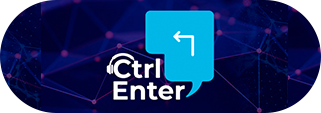A trend for some time now, Emotional Intelligence has been a highly sought after topic for those looking to understand their emotions and know how to better deal with them.
However, Emotional Intelligence is no longer sought after only in personal life – in which it continues to be a very necessary skill – and has also become part of the professional sphere, even more so in times as difficult as the one we are living in, full of uncertainty and fears.
The skill, recognized in the 21st century, in 2020 became an extremely important skill for professionals who wish to perform their duties more successfully, with the prospect of achieving new steps in their company or in their professional life.
IQ x EQ
You may have already heard about IQ, the intelligence quotient, right?
It is the quotient that measures, through a test with questions of a logical-mathematical nature, cognitive abilities on a scale of 0 to 200, referring to rational skills. IQ is always talked about to characterize those people considered “geniuses”.
But, have you heard about EQ, the emotional quotient?
This quotient shows a person's ability to deal with emotions and, lately, it has been much more required in companies than IQ! After all, knowing how to deal with your emotions is important to perform activities well, such as working as a team, making decisions and managing crises.
But, after all, what exactly is Emotional Intelligence?
According to Daniel Goleman, author of the book “Emotional Intelligence: the Revolutionary Theory that Redefines What It Means to Be Intelligent” - who popularized the term in 1995 - Emotional Intelligence, despite being considered subjective, is defined as:
⦁ Persist in a goal despite obstacles in the way;
⦁ Control impulses and know how to wait for desires to be satisfied;
⦁ Create your own motivation;
⦁ Keep yourself in a good state of mind;
⦁ Prevent anxiety from hindering the ability to think;
⦁ Be empathetic;
⦁ Be self-confident.
Goleman composed Emotional Intelligence into 4 pillars that are interconnected and complementary, further helping understanding:
Self-knowledge: understanding how you see yourself! What have you managed to achieve to date? What are your true passions? What are your strengths? What is your repertoire, your background? These are some questions that can help you really get to know yourself and understand how you see yourself.
Self-management: understanding how you deal with yourself. Ask yourself: how do I handle my activities? How do I manage myself and my emotions? Am I optimistic? Do I adapt easily? Do I know what the guidelines are for realizing my activities and dreams?
Empathy: we usually see the definition of empathy as “the ability to put oneself in someone else's shoes”, but, in reality, empathy is putting oneself in someone else's shoes, being, in fact, the other person, without judgement. Do you understand the difference? It is necessary to listen carefully, explore the feelings involved and understand what need the person wants to be met at that moment, since, behind every expectation, there is a need.
Relationship management: our social skills affect all areas of our lives, from professional performance to our emotional life. These skills can be developed throughout life, but it is necessary to always practice as soon as an opportunity arises.
Below are some book suggestions and a TED Talk for you to learn more about the subject and continue in search of Emotional Intelligence. It is worth remembering that this search is a process and practicing it leads you to achieve rewarding and lasting results!


TED TALKS - Positive Psychology:








